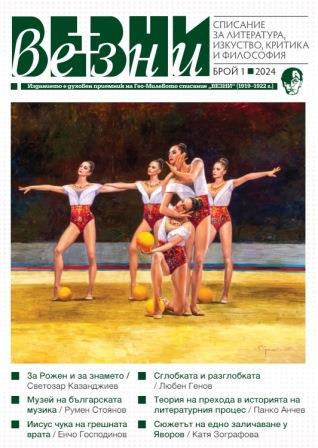
We kindly inform you that, as long as the subject affiliation of our 300.000+ articles is in progress, you might get unsufficient or no results on your third level or second level search. In this case, please broaden your search criteria.

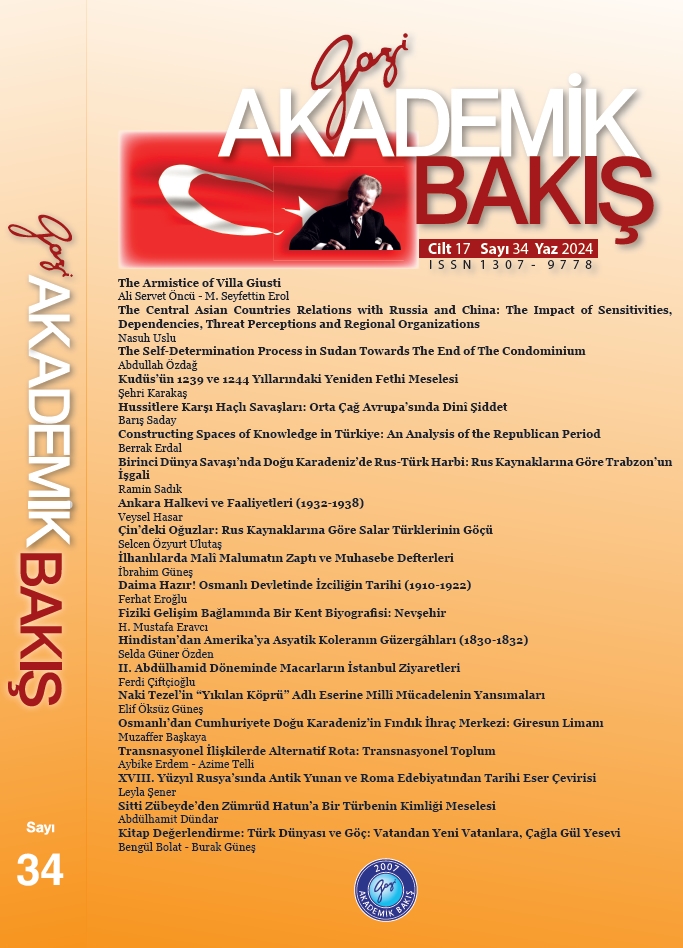
In the 18th century, when history was shaped as science in Russia, there was a great interest in historical works from ancient literature. During this period, many works on ancient history were translated. We discussed the translation of historical works from Ancient Greek and Roman literature in 18th century Russia under the titles of historical works translation from Ancient Greek literature and historical works translation from Ancient Roman literature. Constantin Manasses, Xenophon, Diodorous, Pausanias, Polybius, and Plutarchus stand out among the significant historians translated from Ancient Greek literature in the 18th century. Quintus Curtius Rufus, Titus Livius, Cornelius Nepos, Lucius Annaeus Florus, Valerius Maximus, Velleius Paterculus, Josephus Flavius and Justinus draw attention among the significant historical writers translated from Ancient Roman literature in the said period. Historical works from ancient literature in 18th century Russia were mostly translated from the original language. Among its translators are important names in Russian cultural history. Thanks to these well-educated translators, fluent in several foreign languages, the Russian reader in the 18th century had the opportunity to meet the significant historical works of Ancient Greek and Roman literature.
More...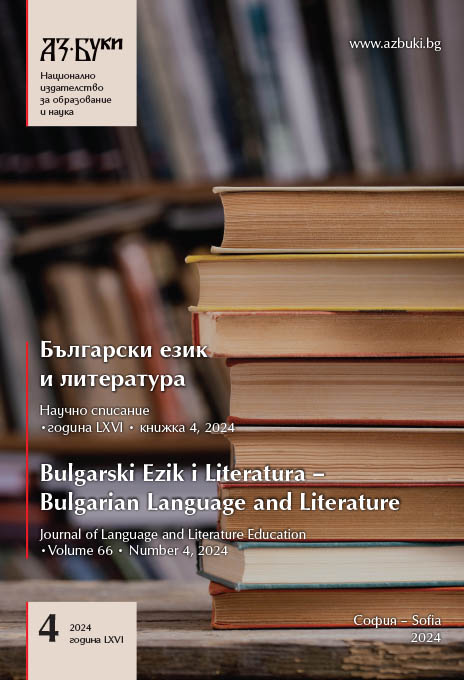
The text attempts to point out the main contributions of Alek Popov’s writing both in terms of the development of contemporary Bulgarian literature and the interest he provoked in translators of Bulgarian literature. The most important characteristics of Popov’s handwriting – convertibility, multilayeredness, humour, satire, irony, and skill in plotting – are also pointed out. Special attention is paid to his rehabilitation of the genre of the short story, as well as some of his cult novels – Mission London and the two-volume work on the Palaveevi sisters.
More...



The proposed article is dedicated to the literary theorist, methodologist, teacher Prof. Alexander Panov. The text examines part of his scientific production, with the main focus being on his latest book “Yordan Yovkov – the art of storytelling”, which examines in a theoretical aspect the latest theoretical positions related to narratology. Some of his analyzes Prof. Al. Panov offered to the magazine “Bulgarian Language and Literature” – “Albena”, “Indje” – so the basis of the book was already laid in the main methodical edition. Emphasis is placed on genre purity, which the researcher insists on, and the theoretical statement that the reader is an active figure in the act of reception, a part of the communicative process creating the literary work, is followed. The main problem is dialogicity, which must be achieved and the feeling of relative freedom in this communication in order for it to become co-communication and co-existence.
More...
This article examines the terminology referring to battery in criminal law and in forensic medicine. A theory is being built according to which the two sciences handle the same terms in the mentioned application field, but naming concepts that differ in their volume, content and varying signs. Terms related to the three main types of battery are examined: light, medium and severe. The empirical material is extracted from normative acts, judicial practice and theoretical sources.
More...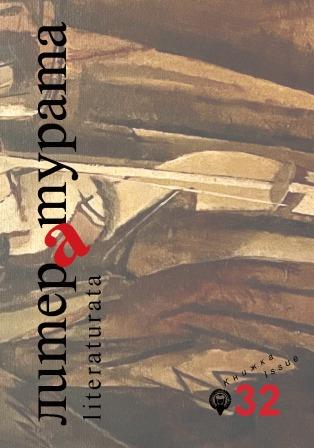
The text offers an overview of the development and state of Bulgarian literary and theoretical thought in the last fifty years. It traces the schools, conceptual ideas, and traditions in the study of literature over an ambitious half-century span of time, featuring biographical texts by contributing literary theorists and connoisseurs of literary poetics and stylistics. Specific analyzes of works from Bulgarian and world literary classics are also proposed, illustrating the directions and trends in the development of Bulgarian literary and scientific thought. The main representatives from several generations of literary theorists, known not only to Bulgaria, but also to Europe and the world, have been selected. The concrete results are outlined, as well as the perspectives in the development of literary theory in Bulgaria and in general – the future of literary poetics and stylistics in the world of new media and the changed receptive and creative realities.
More...
The following article offers a possible reading of the cycle “Under the Monastery Vine” by Elin Pelin as a kind of literary re-incarnation of the medieval genre patericon, also known as “exampla”. Elin Pelin’s text is as well placed in the wider context of the phenomenon of “medievalism” in order to set a direction for interpreting both the phenomenon and the specific literary text.
More...
Book Review: Попилиев, Ромео. Светът като воля за песен или Модернизмът на Петко Ю. Тодоров. Бургас: ИК „Знаци“, 2023. 256 с. ISBN 978-619-7707-18-2.
More...
Book Review: Станчева, Румяна Л. Сравнително литературознание. Фаталната жена и 5 европейски кройки на романа. София: Колибри, 2023. 261 с. ISBN 978-619-02-1305-5.
More...
The primary objective of the analysis is the reconstruction and hierarchy of the connection between emotions and discussed issues in the diplomatic speech at the United Nations Security Council in 2023. Thus, it has been discussed the main reasons for using emotions and their role in diplomacy in 2023. The research is concentrated on such emotions and their impact as – anger, fear, shame, disgust, shame, guilt, sadness, contempt, interest, surprise, and joy. The most emotional topics are connected to the questions of security, war; the least emotional topic relates to poverty. The most frequent emotion is interest, and the least common emotion is joy. As a result, it has been found that emotions in diplomatic meetings are expressed with the help of 1) expressive vocabulary; 2) appropriate grammar; 3) usage of stylistic means, such as litotes, euphemisms etc.; 4) syntactical peculiarities; 5) variety of speech acts. Further multi-vectored interpretations of the reconstructed emotions have been carried out within the frame of the 7-level model of an open system’s hierarchical plane. This allowed us to see emotions' spiral evolution at the diplomatic meeting and what is standing behind them.
More...
In this article, I examine the issue of the tendencies to adapt the orthographic system of the Church Slavonic language in the Bulgarian literary practice that dates back to the 1830s. Special attention is paid to the changes in the acoustic features of given graphemes, as well as to the differentiated functions of the doublet letters regarding the specificities of the Bulgarian language. Consequently, I argue that the results of such an examination can contribute to reconstructing the spoken variety of the Bulgarian literary language from the period above.
More...
The integration of ontological vectors, existential trajectories, psychological states, and material and immaterial substances is a philosophical-artistic reflex in Olga Tokarczuk's work. Integrative strategies, interweaving three fundamental categories—Time, Dream, and Death—outline the future as enlightened knowledge, a bright perspective, a gateway to a new, transformed Life, thanks to the universal need for the reprocessing and improvement of every substance, through the universal energy exchange for the arrival of new vitality. The author's intuition is at the core of integrative strategies, which detects their foundations. Time is an omni-integrative functor that combines intra- and inter-integrative functions, simultaneously integrating its elements and other entities and categories. Space is one of the ontological statuses of Time. The cyclicity of Time as an integrative whole generates Immortality and thus integrates with Death as a prelude, a step towards Immortality — time and Space exchange integrative impulses. Space is a visual illustration of Time, and Time makes Space more plastic. Our common movement in spacetime provokes our shared dreams. The world as a titanic dream is also an omni-integrative construction. Dream integrates Life and Death, depicting our communication with them in a series of images. Life, Death, and Dream form an integrative trio, where the three categories exchange impulses: Life, through Dream, resembles Death; Dream is somewhat synonymous with Death, and Death is akin to Dream. The study aims, based on Olga Tokarczuk's ideas aesthetically woven into the fabric of her works, to discover the integrative strategies of key philosophical categories and prove their perspective on the existential path of humanity. Methods used include analytical-integrative, cognitive-semantic, and comparative methods, drawing on individual works of the author.
More...
The current study focuses on some of the transformations of the lyrical subject in contemporary Slovak poetry after 1989. The chosen authors are representatives of the so-called Text Generation – a poetic group defined by the Slovak critics – and appear to be key figures in the development of postmodernism in Slovak context. Peter Macsovszky is considered a leading postmodern poet in literature after 1989, and Michal Habaj is seen as his follower calling himself ‘a big epigone.’ The main problem investigated in their works is the reduction or the negation of the category of the self. Both authors made their literary debuts in the '90s and are seen as part of the experimental-deconstructional line in Slovak poetry. Their books ‘Fear of Utopia’ and ‘80-967760-4-5’ include self-referential texts in which the poets play with the categories of author, subject, and literature itself. The interpretation of the selected works is based on the authors’ concept of writing as an act of constructing a text reality enclosed within itself and reflecting on the literary terminology which is made by. Their works not only reflect on intertextuality as a literary concept, but in the case of Michal Habaj try to be tendentiously intertextually connected to works by Peter Macsovszky. In the texts, we see the reduction of the self to a grammatical form as leading to something of a disappearing lyrical subject.
More...
The article studies the issues of russian rock poetry in terms of linguocultural analysis. Diana Arbenina is a Russian rock poetess, the leader of the rock band “Night Snipers” /Ночные снайперы/. Besides songs and lyrics, Arbenina writes poetry and prose. Over the years of her career, Diana Arbenina has created more than 460 songs and poems which she prefers to call "anti-songs." The article aims to identify the anti-songs of Diana Arbenina in the context of modern humanitarian knowledge. The terms “rock text” "poetry", and idiolect are specified. The article addresses a rock text and rock poetry as a complex synthetic phenomenon and concludes that the texts of Diana Arbenina are closely associated with poetry, melody, musical rhythm, and vocal. The accent in the article is devoted to analysis of the Arbenina's anti-songs and contains the description of lexical and syntactic features of her texts, examples of language game, specific features of intertextuality references in the context of nowadays Russian rock poetry.
More...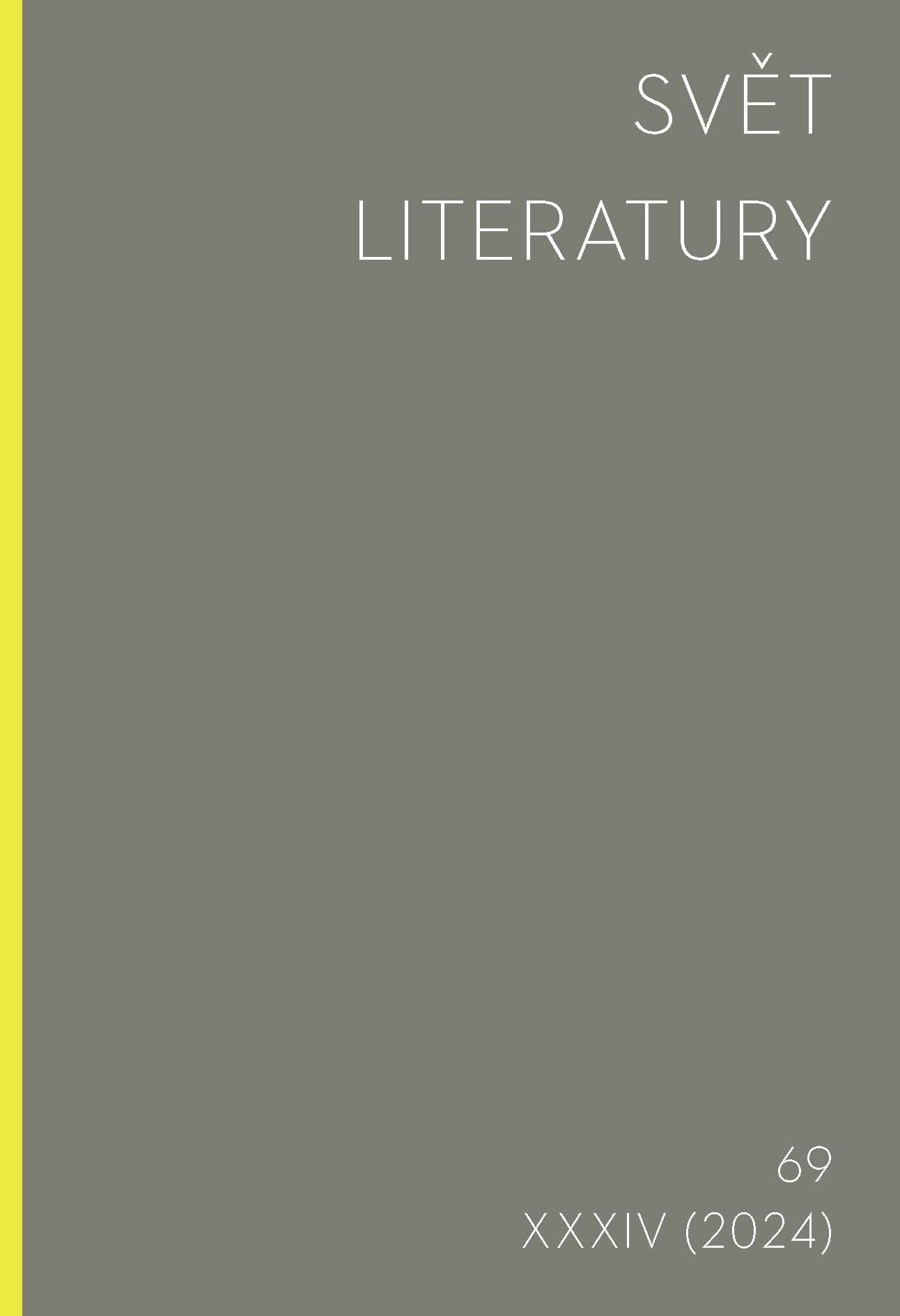
The study focuses on three authors of contemporary Hungarian literature who enter into a dialogue with Kafka’s texts through intertextual references and elevate these intertexts to the level of textforming elements in their own works. It examines Kafkaesque intertexts in Péter Esterházy’s Indirect (Függő) and The Book of Hrabal (Hrabal könyve), Mihály Kornis’s drama Punishments (Büntetések), Szilárd Borbély’s poetry collection Berlin — Hamlet and his posthumously published fragmentary novel Kafka’s Son (Kafka fia). Based on the analyses carried out, it can be concluded that Kafka’s significance for contemporary Hungarian literature is not limited to the simplistic category of literary influence, but involves multifaceted and complex interactions that, in the case of all three authors under study, are related to the desire to transcend the prevailing literary discourse.
More...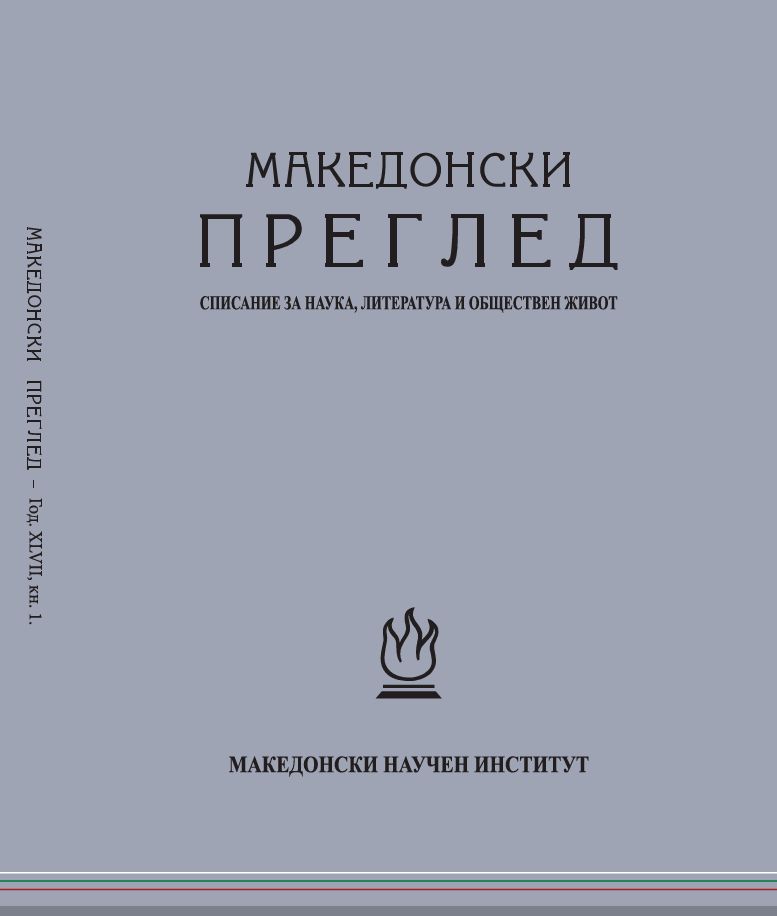
The article traces the most significant achievements in linguistics that have found a place on the pages of “Macedonian Review” for a century. The fathers of Bulgarian linguistics, such as Miletić, Romanski, Arnaudov, Mirchev and others, published their scientific studies, aimed at the Bulgarian language and its dialects as spoken across its entire linguistic area, including Moesia, Thrace and Macedonia. In more recent times, after the resumption of the journal, several important topics related to the official language of the Republic of North Macedonia and to what was coined language dispute with Bulgaria have been covered by the journal. Foreign linguists have also taken part in it.
More...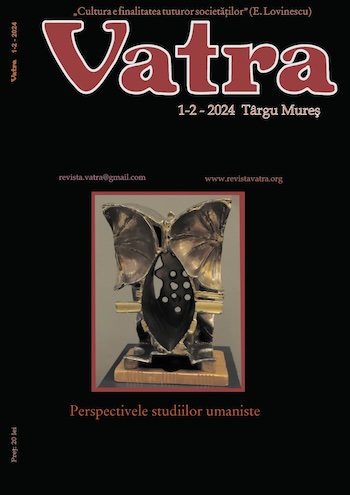
The essay analyzes the political influence of the Moldovan diaspora, particularly in the context of recent presidential elections in the Republic of Moldova. The narrative explores the complexities and implications of the diaspora's political activism, drawing parallels with previous significant electoral interventions, such as the election of Klaus Johannis as President of Romania. The author reflects on the motivations, perceptions, and positions of diaspora members in their political engagement, emphasizing the nuanced realities beyond their aspirations for progress. The article discusses the broader socio-political context, including the interplay of local and global dynamics, the impact of political maneuvering, and the philosophical considerations of displacement and belonging.
More...